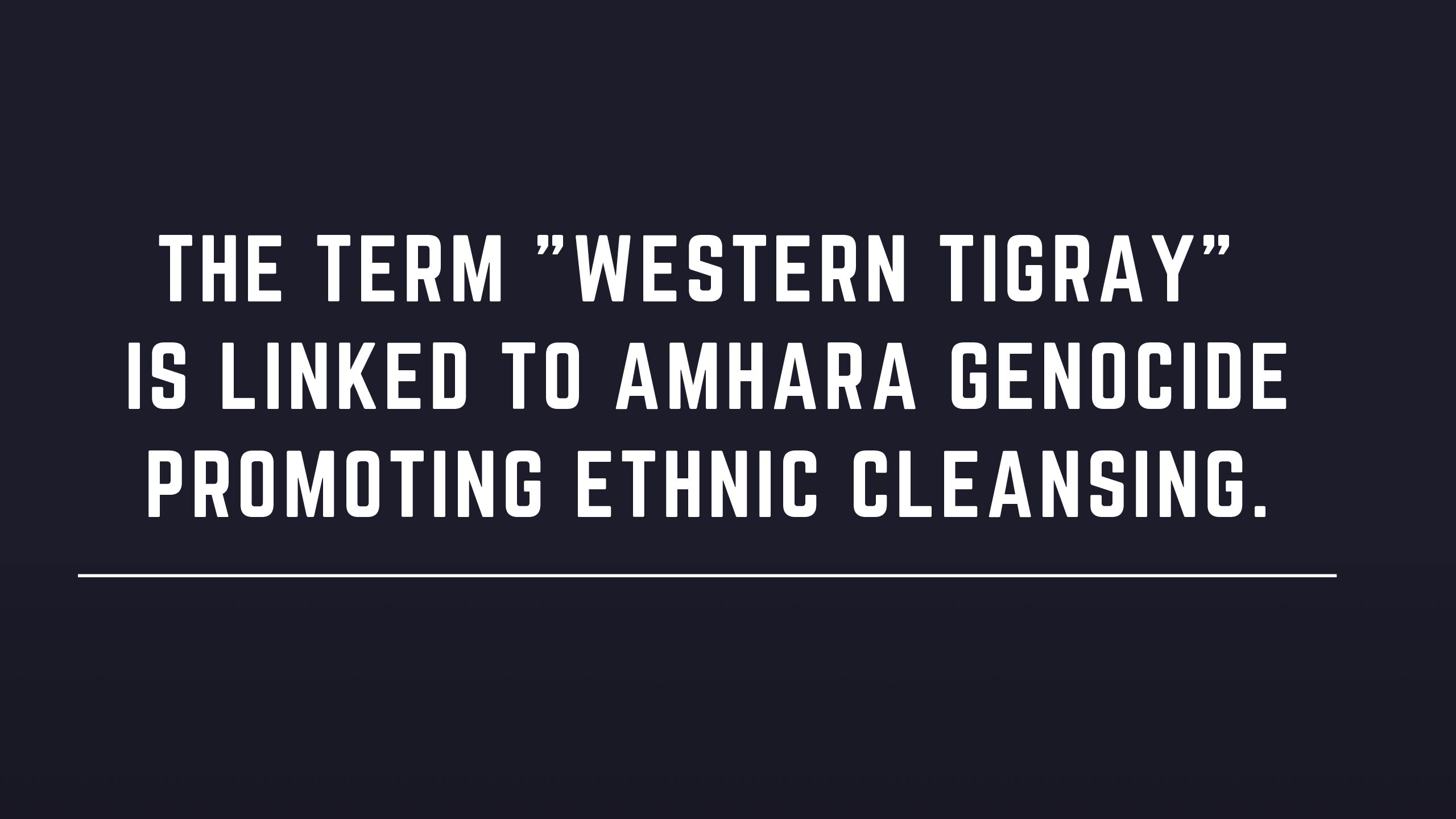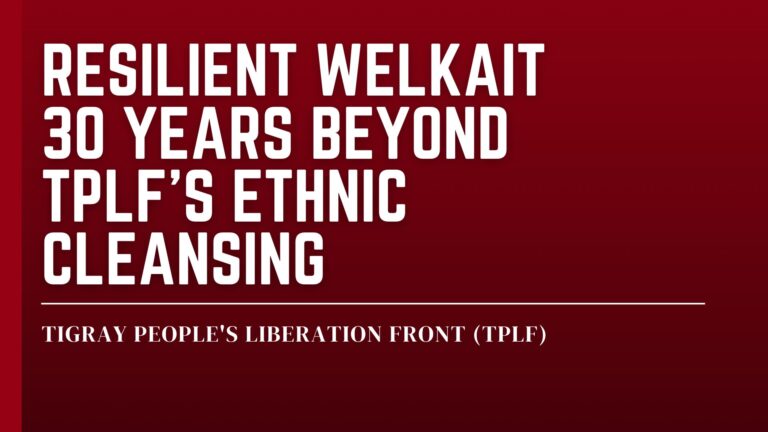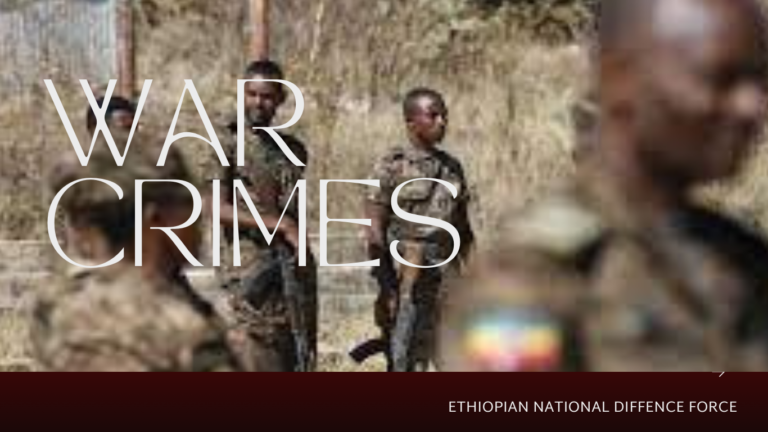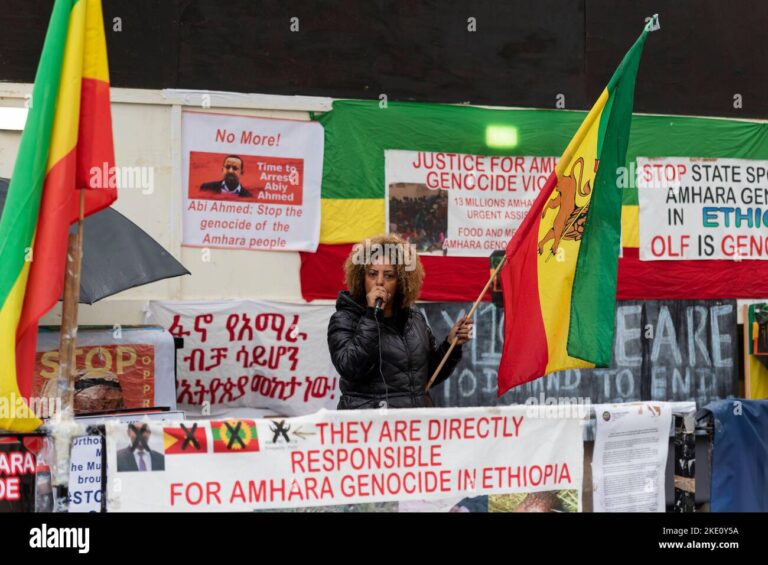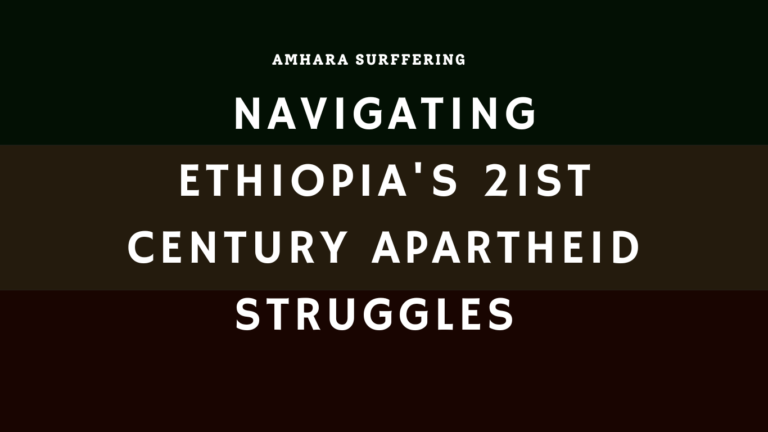Make a Difference
with Your Support
Urgent International Appeal: Over 70 Drone Strikes in Amhara Region Immediate Action Needed
Greetings,
I hope this message finds you well. I am writing to urgently draw your attention to a dire situation unfolding in the Amhara region of Ethiopia, marked by a series of brutal drone strikes, extrajudicial killings, and egregious human rights violations. The gravity of the crisis demands immediate international intervention to prevent further atrocities and safeguard the lives of innocent Amhara civilians.
The Disturbing Reality:
Since the onset of the conflict, more than 70 drone strikes have been documented, targeting various regions in the Amhara territory. The list of attacks is as follows:
- Gojam: 22
- Bete Amhara/Wollo (Mersa-Ambasel, Lasta, Raya Kobo): 18
- Gondar (East Gondar, North Gondar, Central Gondar): 15
- Shewa: 12
Recent Incidents:
November 30 Tragedy: On November 30, 2023, two drone strikes were conducted by Abiy regime forces in Delanta Woreda. Resulted in the tragic loss of 25 civilian lives, including a medical doctor. Another innocent civilian was injured in the attack.
December 1 Tragedy: Between 9:20-9:40 a.m. on December 1, 2023, three consecutive drone strikes targeted a market in Dariya Kebele, Ayna Bugna Woreda, N/Wollo. Initial reports suggest a devastating toll, with more than 30 civilians losing their lives.
November 6 Incident: A drone allegedly operated by the government bombed a primary school in the Wadera district. Resulted in the deaths of seven people, including three teachers.
November 4 Shelling: Government forces shelled residential areas in Chuahit town, central Gondar zone. 14 people lost their lives, and more than 14 others were injured. Many victims were inside their homes during the shelling.
International Concern:
The international community, including the United Nations Human Rights Office, has expressed deep concern over the impact of drone strikes and other forms of violence in the Amhara region. Urgent and impartial investigations are imperative to address the violations and hold perpetrators accountable.
Extrajudicial Killings and Civilian Casualties:
Recent reports highlight extrajudicial killings, with civilians combatants, bearing the brunt of the violence. The Ethiopian Defense Force’s extensive use of drone attacks and artillery shelling has resulted in significant civilian casualties.
UN Human Rights Office Report:
The UN Human Rights Office has raised alarms over the devastating impact of drone strikes in the Amhara region. Recent incidents, including attacks on a primary school and a bus station, amount to arbitrary deprivation of life under international human rights law.
Immediate Action Required:
1. Independent Investigation: Call for an immediate, independent, and transparent investigation into the drone strikes, extrajudicial killings, and human rights abuses in the Amhara region.
2. Diplomatic Pressure: Exert diplomatic pressure on the Ethiopian government, urging an immediate cessation of drone strikes, protection of civilians, and accountability for those responsible.
3. Humanitarian Assistance: Mobilize resources and support for humanitarian aid to alleviate the suffering of those affected by the conflict, especially displaced populations and vulnerable communities.
4. International Collaboration: Actively engage with other international bodies and organizations to comprehensively address the multifaceted challenges in the Amhara region.
Your Urgent Advocacy Matters:
We implore you to use your platform and influence to raise awareness about the dire situation in the Amhara region. The people affected by this crisis need immediate international support, and your advocacy can play a crucial role in bringing about positive change.
Thank you for your prompt attention to this critical matter. We trust in your commitment to upholding justice and human rights on the global stage.
Sincerely,
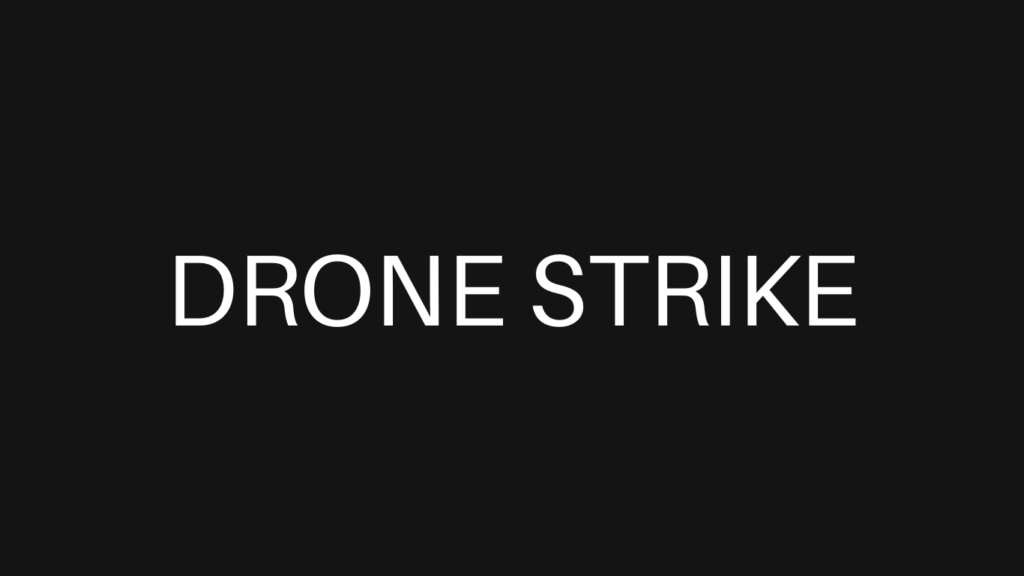
Since the onset of the conflict, more than 70 drone strikes have been documented, targeting various regions in the Amhara territory.
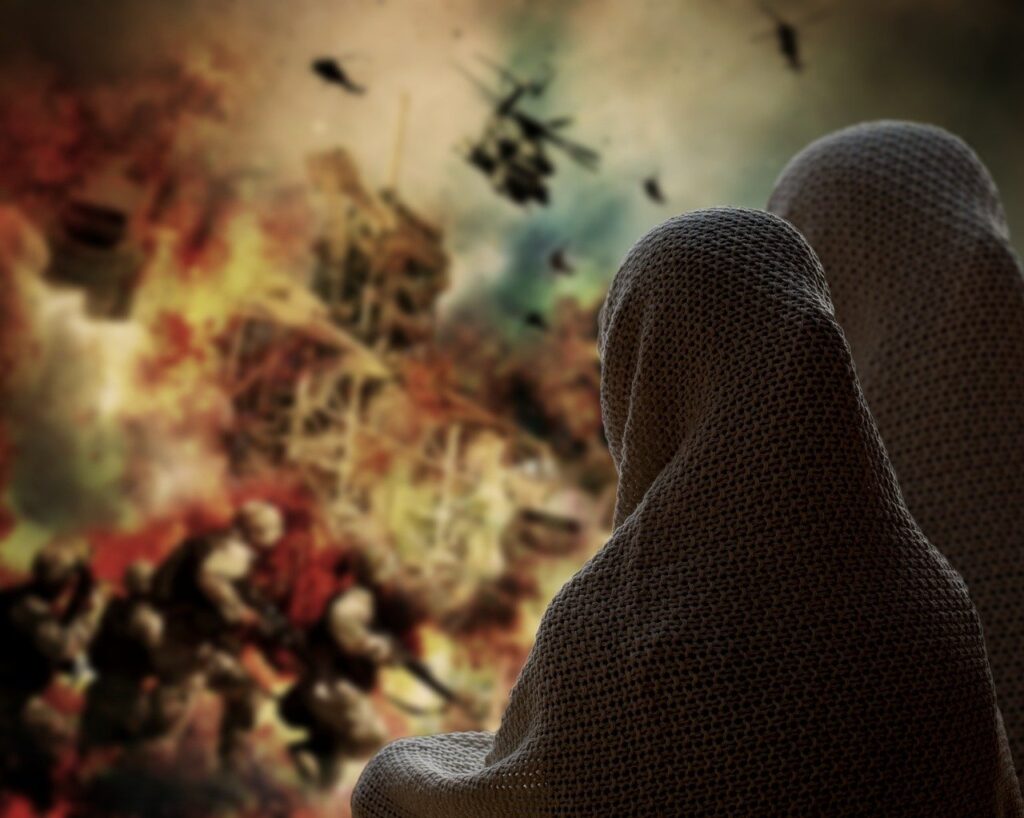
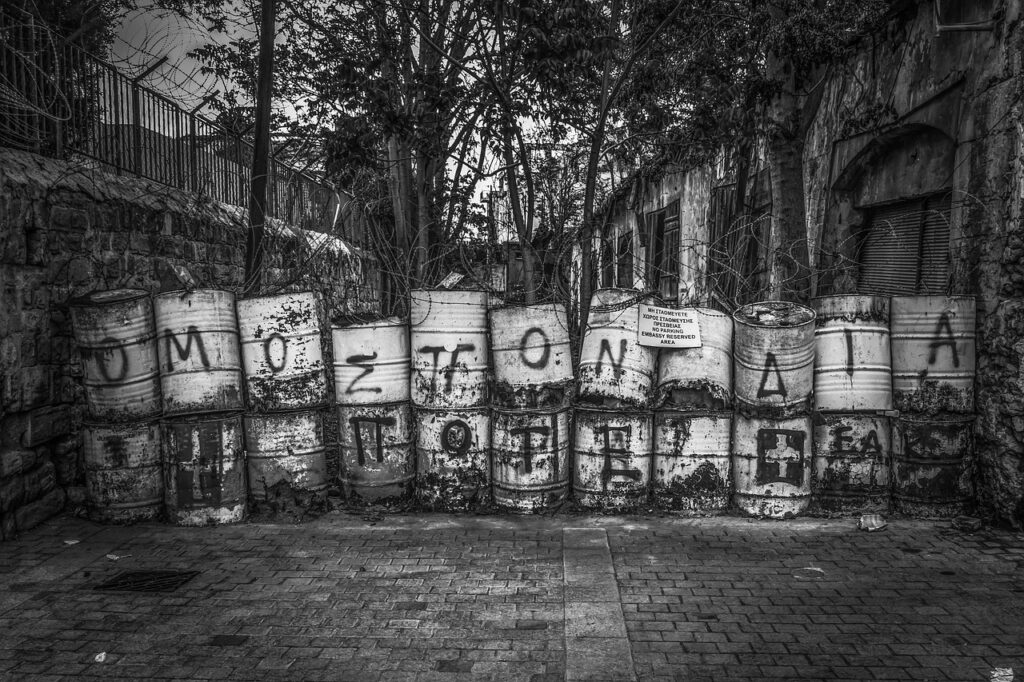
Urgent Seminar Inquiry: Addressing Human Rights Crisis in Ethiopia & the suffering of Amhara Community
Dear Professor Steven Ratner,
I hope this message finds you in good spirits. I am reaching out to explore the potential impact of the upcoming seminar, “Human Rights Politics at the UN: An Outsider’s/Insider’s Account,” in relation to the ongoing plight of the Amhara community in Ethiopia and the essential measures required to address this urgent situation. Your renowned expertise in Human Rights Politics is fundamental in addressing the escalating situation in Ethiopia, especially concerning the targeted violence against the Amhara people and the distressing reports of human rights abuses in the region.
The Amhara community has been enduring relentless violations of their human rights, necessitating the collective attention and action of the global community. Sadly, the severity of this unprecedented humanitarian crisis remains largely unnoticed on the international stage.
An investigation conducted between August 3 and October 3, 2023, unearthed deeply troubling findings. In both the Amhara and neighboring Oromia Regions, at least 807 civilians, including women, children, the elderly, and a few non-combatants, suffered tragic losses. Additionally, 634 individuals were injured, while 200 women fell victim to rape and sexual assault blatant violations of international humanitarian law and fundamental human rights.
On September 17, there were multiple reports of drone strikes and shelling by the ENDF in the Amhara region. Drone strikes reportedly killed at least 18 civilians in Dembecha, one in Finote Selam, and 30 in Quarit woreda. Forces aligned with the Abiy regime have been implicated in several distressing incidents, including indiscriminate shelling, executions, and the arrest of civilians. In the area known as WoynWuha in Dega-Damot Woreda (West Gojjam), the Abiy regime forces carried out shelling that tragically resulted in the loss of five civilian lives. Additionally, in Chemoga, situated on the outskirts of Debre-Markos city, a 12-year-old boy fell victim to fatal gunfire. Another young man met a similar fate in Aneded Woreda (East Gojjam).
Furthermore, a distressing event unfolded in Nefas Mewcha town of Lay-Gayint Woreda (South Gonder), where mass arrests of civilians occurred subsequent to the military’s entry into the town. Additionally, over 20 civilians, including students and teachers, and her infant were reported killed by drone strikes on a school in Wedera and its surrounding areas in Ankober Woreda (North Shewa), encompassing #AliyuAmba town. These distressing incidents have been reported by multiple sources. The situation in the Amhara Region remains deeply concerning, marked by a series of tragic events that have led to loss of life and widespread fear among civilians.
Ethiopian National Defense Forces (ENDF), instead of protecting its citizens, have been involved in violence against civilians in the Amhara region. Residents of Shewa Robit in the Amhara region have experienced beatings and harassment by ENDF since July 27, 2023, being accused of being part of the Amhara Fano. Such actions raise serious questions about the government’s commitment to safeguarding the welfare of all citizens. Recent distressing events, notably the horrifying incident on July 26, 2023, in Goha-Tsion, Oromia region, where innocent civilians were ruthlessly targeted solely due to their Amhara identity, underscore the severity of this crisis.
Following widespread anti- government protests in Amhara Region in April 2023, the ruling Oromo Prosperity Party regime led by Prime Minister Ably Ahmed commenced a genocidal war on the region. The Ably regime has sent hundreds of thousands of soldiers to commit genocidal massacres, weaponized rape, mass arrests and industrial scale property destruction in the Amhara Region. Tens of thousands of Amhara opposition figures, journalists, professors, students, and others have been placed into concentration camps across Addis Ababa city, Amhara, and Oromia Regions. Invading forces include Oromo Special Forces, Oromo Liberation Army, the Tigray People’s Liberation Front, and allied groups.
Fano are volunteer patriot’s, disciplined freedom fighters making up of the Amhara people from all walks of life’s farmers, doctors, teachers, and everyday civilians who are protecting their people who have been facing an ongoing and systematic genocide throughout Ethiopia. In the last 5 years under Abiys regime Amharas have been killed daily specifically in the oromia region, wollega, metekel, Benishungul gumuz, Amhara region and, all throughout Ethiopia. For the last 30 years the Genocide of Amharas & human rights abuses the Amharas have faced been ignored by the international human rights orgs & the international community.
As advocates for human rights and justice, it is our moral responsibility to demand accountability and immediate action. Therefore, I propose a discussion on Friday, November 10, at noon CST, urgently addressing the need for an independent and impartial investigation into these reported human rights violations. It is crucial to advocate for holding those responsible accountable and ensuring that the national forces fulfill their duty to protect and serve the Ethiopian people.
The subdued international response to this crisis has left the Amhara people feeling abandoned and voiceless in the face of unrelenting attacks. We cannot turn a blind eye to their suffering. Together, our collective influence and resources can make a significant impact in safeguarding the rights and dignity of those affected.
Our demands are for the immediate and unconditional:
- Withdrawal of non-Amhara forces from Amhara Region
- Release of all Amhara political prisoners across the country
- Restoration of telecommunications and internet services to Amhara Region
- Resignation of Prime Minister Abiy Ahmed and his Prosperity Party cabinet
- Establishment of a civilian-led transitional government to facilitate a transparent and inclusive power sharing agreement.
- Delivery of humanitarian aid to IPs and resettlement to their homes
- Initiation of independent investigations into atrocities, war crimes and genocide of Amhara in Ethiopia since 1983.
Your invaluable expertise is crucial in orchestrating a meaningful and impactful response. I earnestly implore your participation in this discussion to explore potential strategies and actions aimed at addressing the urgent crisis faced by the Amhara people.
Thank you for considering this, and I eagerly anticipate your participation in this critical conversation.
Best regards,
Contact
For More Information
https://linktr.ee/amharagenocidearticles?utm_source=linktree_profile_share.
📢 Urgent Campaign Appeal Humanitarian Crisis in the Amhara Region
Greetings
I hope this email finds you well. I am writing to bring to your attention the dire and multifaceted humanitarian crisis that is currently unfolding in the Amhara Region of Ethiopia.
The situation in the Amhara Region is increasingly dire, exacerbated by pre-existing needs due to the conflict in the northern parts of the country, concurrent outbreaks of cholera and malaria, drought-like conditions in various zones, a higher prevalence of malnutrition, and an influx of returnees and refugees from Sudan.
Drought-like conditions have severely affected tens of thousands of individuals across several zones, particularly in North Gondar, Central Gondar, North Shewa, North and South Wello, South Gondar, Wag Hamra. Many are dependent on humanitarian food aid and under the Productive Safety Net Program (PSNP). Water scarcity has become a critical issue, with more than 32,000 people, including IDPs, returnees, refugees, and those in cholera treatment centers, relying on ongoing water trucking. Reports indicate severe lack of access to water sources in parts of North Gondar and Wag Hamra, highlighting the urgent need for a robust response to this crisis.
The region is grappling with a concerning malnutrition crisis, marked by a lack of adequate response to moderate acute malnutrition (MAM), which significantly contributes to the high incidence of severe acute malnutrition (SAM). Shockingly, nutrition partners report a Global Acute Malnutrition (GAM) rate of 21% among children and an alarming 54.6% among pregnant and lactating women (PLW), surpassing the global threshold of 15%. Critical GAM rates of 49% and 36% have been reported in specific woredas, demanding immediate and targeted intervention.
Though efforts are underway, the situation is compounded by limited data coverage and completeness, potentially indicating higher GAM rates than reported. This underscores the urgency of addressing the nutrition crisis in the region.
Assessments are scheduled in 16 priority woredas and IDP locations across several zones, aiming to address access challenges and the limited presence of partners to conduct assessments in additional 16 priority woredas.
In October, the Government of Ethiopia (GoE) has allocated quarter-three food and multi-purpose cash (MPC) to 1.43 million people under the Humanitarian Response Plan (HRP) and PSNP for the Amhara Region, targeting IDPs and the most vulnerable individuals in need of food assistance.
The situation demands urgent action and robust support. We are reaching out to appeal for your assistance and collaboration to address this critical humanitarian crisis. Your contribution and support can make a significant difference in saving lives and alleviating the suffering of those affected in the Amhara Region.
Please find further detailed updates on the situation in the attached document.
Thank you for your attention to this pressing matter. We look forward to your swift and determined response.
Sincerely,
📢 አስቸኳይ የእርዳታ ጥሪ
ሰላም
ለተወደደው ጤናዎ እንደምን ሰነበቱ፤
ከዚህ በማስቀጠል የማቀርብልዎት መልእክት ከፍተኛ ችግር ውስጥ ስለተጋለጠው ህዝባችን ጉዳይ ስለሆነ የእርስዎን ትኩረት በእጅጉ ይሻል፡፡ መልእክቱን አንበብው ለሚሰጡን ቀና ትብብር አስቀድመን እናመሰግናለን፡፡
ጉዳዩ ይህ ነው፡፡
በአማራ ክልል የተከሰተው እና አሳሳቢ በሆነ ደረጃ እየተባባሰ የመጣው ድርቅ ወለድ የምግብ እጦት እና የመጠጥ ውሀ እጥረት ማህበረሰቡን አደጋ ላይ በመጣሉ የሁላችንንም ትኩረት የሚሻ ሆኖ ተገኝቷል፡፡ ስለሆነም አፋጣኝ እና ቆራጥ እርምጃ እንዲወሰድ የግድ አስፈላጊ የሆነበት ጊዜ ላይ እንገኛለን፡፡
በዋነኝነት ይህንን ችግር የሚያባብሱትን ምክንያቶች መፍታት ወሳኝ ነው። ከዋና ዋናዎቹ ምክንያቶች መካከል የዘገየ እና በቂ ያልሆነ የምግብ ስርጭት፣ ሁለገብ ዘርፈ ብዙ ምላሽ አለመስጠት፣ በቂ ማሟያ እና ቴራፒዩቲካል አመጋገብ አለመኖር፣ ግጭት በተከሰተባቸው አካባቢዎች ያለው የጤና ስርዓት መዳከም እና በ43 ቅድሚያ የሚሰጣቸው ወረዳዎች በሆትስፖትስ ምደባ ብቻ በመታለፋቸው.
የስነ-ምግብ ክላስተር አስጨናቂ መረጃዎችን ከሰኔ 5 እስከ 18 ባለው ጊዜ ውስጥ ከ 29,353 ከአምስት አመት በታች የሆኑ ህጻናት (CU5) እና 12,123 ነፍሰ ጡር እና የሚያጠቡ ሴቶች (PLW) ተፈናቃዮች መካከል መካከለኛ እና ከባድ የምግብ እጦት አመልክቷል። ዓለም አቀፍ አጣዳፊ የተመጣጠነ ምግብ እጥረት (GAM) ለCU5 12 በመቶ እና ለ PLWs 19 በመቶ የተመጣጠነ ምግብ እጥረት ችግር ተገኝቷል። በዚህ ወቅት ከ8,000 በላይ ህጻናት እና 9,600 እናቶች የምግብ እጦት ህክምና አግኝተዋል። ይሁን እንጂ የችግሩ ስፋት ለችግሩ በቂ ምላሽ ለመስጠትና የችግሩ መንስኤዎችን ለመፍታት ተጨማሪ እርምጃ መውሰድ እንደሚያስፈልግ ግልጽ ነው።
ይህ በእንዲህ እንዳለ በዋግ ኽምራ ዞን አበርገሌ እና ፀግበጂ ወረዳዎች የመመለሻ ቦታዎች ላይ ሁኔታው አሳሳቢ ነው። ከ110,000 ተፈናቃዮች መካከል እስከ ሰኔ 20 ቀን 2008 ዓ.ም. ድረስ እንደ አለመታደል ሆኖ በእነዚህ አካባቢዎች በንጽህና፣ ምግብ፣ ስነ-ምግብ፣ ጤና እና የመጠለያ ዕርዳታ ረገድ ያለው ምላሽ ውስን ሲሆን ብዙ የተመለሱ ተፈናቃዮች ምንም አይነት ሰብዓዊ ዕርዳታ ሳያገኙ ቆይተዋል። ሆኖም ይህ ሪፖርት ከወጣ የቆየ መሆኑን ታሳቢ በማድረግ ሁኔታው አሁን የከፋ እንደሆነ በርካታ የአካባቢው ነዋሪዎች እና የአይን እማኞች እያሳወቁ ይገኛሉ፡፡
ይህ ሆኖ ግን በሰሜን ኢትዮጵያ ግጭት ወቅት ከሁለት ዓመታት በላይ አገልግሎት ያልሰጠው ሰቆጣ እና ፀግቤን የሚያገናኘው በጥራሪ ወንዝ ላይ በቅርቡ የተደረገው ድልድይ አንዳንድ አዎንታዊ ለውጦች ታይተዋል። ይህ ጥገና ቀደም ሲል ተደራሽነቱ የተገደበ ሰብአዊ ምላሽን ለማሳደግ እና በፀግቤጂ ውስጥ ያሉ ማህበረሰቦችን ችግር ለመቅረፍ ጉልህ እገዛ ማድረግ አለበት።
ከህዳር ወር ጀምሮ በክልሉ ከ449,000 በላይ ተፈናቃዮች (120,600 CU5 ጨምሮ) በጤና ተቋማት ነፃ የጤና አገልግሎት ማግኘታቸውን የአማራ ህብረተሰብ ጤና ኢንስቲትዩት የሚያበረታታ ጥረት አድርጓል። ሆኖም በክልሉ በተፈናቀሉ አካባቢዎች ለበሽታው መንስኤዎች ከፍተኛ የሆነ የተመጣጠነ ምግብ እጥረት እና የምግብ እጦት መሆናቸው የኛን ምላሽ አጣዳፊነት ያሳያል።
የቅርብ ጊዜ መረጃ እንደሚያሳየ ከፍተኛ የወባ ስርጭት የታየ ሲሆን በድምሩ 2.09 ሚሊዮን ተጠቂዎች ተገኝተዋል፡፡ ስለሆነም አፋጣኝ እና የተጠናከረ ምላሽ መስጠት አስፈልጓል።
ወባ በህብረተሰብ ጤና እና ደህንነት ላይ የሚያደርሰውን ወሳኝ ተጽእኖ በመረዳት ተባብሮ መስራት አስፈላጊ በመሆኑ የአማራ ጤና ጥበቃ ባለስልጣናት ድጋፍ እንዲያደርጉልን ጥሪዬን አቀርባለሁ፡፡ ይህም ከጉዳዩ አሳሳቢነት አንጻር ፈጣን ምላሽ የሚሻ ነው፡፡
እንደ ርዳታ ባለስልጣን ይህንን ሰብአዊ ቀውስ ለመቅረፍ እና በአማራ ክልል ውስጥ ላሉ ተጋላጭ ህዝቦች ድጋፍ የማድረግ የሞራል ግዴታ አለብን። የተቀናጀ ጥረታችን እና ፈጣን እርምጃ ህይወቶችን በማዳን እና የተጎዱትን ስቃይ በማቃለል ላይ ትልቅ ለውጥ ሊያመጣ ይችላል።
ሁሉም ባለድርሻ አካላት ተቀራርበው እንዲተባበሩ እና ተጨማሪ ግብዓቶችን በማሰባሰብ የተመጣጠነ ምግብ እጥረት ምላሻችንን እና ሰብአዊ ርዳታን ከፍ ለማድረግ እንድንረባረብ እጠይቃለሁ። የንጽህና አጠባበቅ፣ የምግብ፣ የአመጋገብ፣ የጤና እና የመጠለያ እርዳታን ጨምሮ አስፈላጊ አገልግሎቶችን በከፋ ችግር ውስጥ ላሉ ወገኖች እንዲደርስ በጋራ እንስራ።
ለዚህ አንገብጋቢ ጉዳይ ትኩረት ስለሰጡን እናመሰግናለን። ፈጣን እና ቆራጥ ምላሽዎትን በጉጉት እጠብቃለሁ።
ከሰላምታ ጋር
Read the latest from Ethiopia ‘s Situation Report
https://reports.unocha.org/en/country/ethiopia/card/5EhBh4Xf5z/
📢 Urgent Campaign Appeal Humanitarian Crisis in the Amhara Region
Greetings
I hope this email finds you well. I am writing to bring to your attention the dire and multifaceted humanitarian crisis that is currently unfolding in the Amhara Region of Ethiopia.
The situation in the Amhara Region is increasingly dire, exacerbated by pre-existing needs due to the conflict in the northern parts of the country, concurrent outbreaks of cholera and malaria, drought-like conditions in various zones, a higher prevalence of malnutrition, and an influx of returnees and refugees from Sudan.
Drought-like conditions have severely affected tens of thousands of individuals across several zones, particularly in North Gondar, Central Gondar, North Shewa, North and South Wello, South Gondar, Wag Hamra, and Oromo Special zones. Many are dependent on humanitarian food aid and under the Productive Safety Net Program (PSNP). Water scarcity has become a critical issue, with more than 32,000 people, including IDPs, returnees, refugees, and those in cholera treatment centers, relying on ongoing water trucking. Reports indicate severe lack of access to water sources in parts of North Gondar and Wag Hamra, highlighting the urgent need for a robust response to this crisis.
The region is grappling with a concerning malnutrition crisis, marked by a lack of adequate response to moderate acute malnutrition (MAM), which significantly contributes to the high incidence of severe acute malnutrition (SAM). Shockingly, nutrition partners report a Global Acute Malnutrition (GAM) rate of 21% among children and an alarming 54.6% among pregnant and lactating women (PLW), surpassing the global threshold of 15%. Critical GAM rates of 49% and 36% have been reported in specific woredas, demanding immediate and targeted intervention.
Though efforts are underway, the situation is compounded by limited data coverage and completeness, potentially indicating higher GAM rates than reported. This underscores the urgency of addressing the nutrition crisis in the region.
Assessments are scheduled in 16 priority woredas and IDP locations across several zones, aiming to address access challenges and the limited presence of partners to conduct assessments in additional 16 priority woredas.
In October, the Government of Ethiopia (GoE) has allocated quarter-three food and multi-purpose cash (MPC) to 1.43 million people under the Humanitarian Response Plan (HRP) and PSNP for the Amhara Region, targeting IDPs and the most vulnerable individuals in need of food assistance.
The situation demands urgent action and robust support. We are reaching out to appeal for your assistance and collaboration to address this critical humanitarian crisis. Your contribution and support can make a significant difference in saving lives and alleviating the suffering of those affected in the Amhara Region.
Please find further detailed updates on the situation in the attached document.
Thank you for your attention to this pressing matter. We look forward to your swift and determined response.
Sincerely,
Concerns Regarding Panel Composition for "The Devastating Cycle of Impunity in Ethiopia"
Dear Human Rights Program at Harvard Law School,
I hope this message finds you well. I am writing to express my concerns about the composition of the panel for your upcoming event titled “The Devastating Cycle of Impunity in Ethiopia,” scheduled for September 22nd in collaboration with Amnesty International.
It has come to my attention that three out of four panelists for this event are of Tigrayan ethnicity, despite Tigrayans representing only 5% of Ethiopia’s population, which consists of over 125 million people and comprises more than 80 ethnic groups. While I understand the importance of diverse perspectives on such a critical issue, this panel composition seems to highlight only one perspective and risks not adequately representing the complex political elements at play in Ethiopia.
Furthermore, it has been suggested that Amnesty International’s Eastern African regional office may employ nepotism in their hiring process, which could have influenced the panelist selection. As a renowned institution, Harvard Law School should ensure that events of this nature operate within the principles of the JEDI (Justice, Equity, Diversity, and Inclusion) framework to promote fairness, balance, and a comprehensive understanding of the topic.
In addition to these concerns, it is worth noting that ethnic Amharas constitute one of the largest ethnic groups in the country. However, they are often underrepresented on platforms discussing Ethiopia’s current circumstances, including the ongoing war declared on them. Reports of concentration camps and mechanized warfare in this context make it even more crucial to include the Amhara perspective in discussions on the topic.
I kindly request that you review the panel composition for this event and consider making adjustments to ensure a more diverse representation of perspectives, including those of the Amhara community. This would not only enhance the quality of the discussion but also uphold the principles of fairness and inclusivity that are integral to the mission of Harvard Law School.
Thank you for your attention to this matter, and I look forward to a more balanced and insightful panel discussion on September 22nd.
Sincerely,
Amhara Association of America
AmharaAmerica.org
War on Amhara
Dear esteemed members of the International Community,
I hope this email finds you well, although the content of this message is of utmost concern. Today, I urgently bring your attention to the heart-wrenching crisis unfolding in Ethiopia, specifically in the Amhara region. The situation demands immediate action from all of us as representatives of the global community.
Ethiopia, a nation rich in history and cultural diversity, is currently facing an unprecedented humanitarian catastrophe. The Amhara people, who have endured relentless attacks on their identity and safety, find themselves in a precarious situation with minimal international attention. Armed groups continue to perpetrate violence and aggression against civilians, inflicting immense pain and suffering.
The crisis originated with a shocking incident on July 26, 2023, in Goha-Tsion, Oromia region, where OLA militants, with the support of regional officials, ruthlessly targeted innocent civilians based solely on their Amhara identity. This act of senseless violence highlights the severe consequences of ethnic tensions and the disregard for innocent lives.
The situation further escalated with clashes erupting in Gonder and Central Gonder Zone, Amhara Region. The confrontations between various armed groups, including the , and the Oromo-dominated ENDF, have resulted in the injury of at least 11 civilians, exacerbating the suffering faced by civilians in the region.
As representatives of the international community, we must stand united in demanding accountability and reform. The misuse of Ethiopia’s national forces is a grave violation of trust and human rights, contradicting the principles of justice and democracy. I implore all of you to join in calling for an independent and impartial investigation into the reported human rights violations. It is crucial that those responsible are held accountable and that the national forces are restored to their rightful role of protecting and serving the Ethiopian people, upholding their solemn oath, and fostering a society where human rights and dignity are revered above all else.
Despite the gravity of the situation, the international response has been surprisingly muted. The selective outrage and lack of meaningful intervention have left the Amhara people feeling abandoned and voiceless in the face of relentless attacks.
We cannot afford to ignore the cries for help from the Ethiopian people. Let us use our collective influence and resources to protect the dignity and rights of those affected. The lives of countless innocent civilians depend on our unified response. Together, we can make a significant impact and work towards a brighter, more just future for the people of Ethiopia.
Thank you for your time and consideration.
Sincerely,
Urgent Action Needed: Addressing False Allegations Posted on Twitter on 12:05 PM Jul 24, 2023
Dear, Government Offical’s
I hope this message finds you in good health. As a member of the Amhara community, I am writing to express our deep concerns regarding the false allegations posted on Twitter at 12:05 PM · Jul 24, 2023, by Brad Sherman. I feel compelled to bring to your attention the distressing situation in Ethiopia and the misrepresentation of facts that do not adequately represent the Amhara people’s perspective. The ongoing conflict in Ethiopia has caused immense suffering and loss, affecting the Amhara people. However, it is disheartening to witness false and misleading information being disseminated, especially on platforms like Twitter.
I also find it concerning that baseless accusations of ethnic cleansing of “Tigrayans in West Tigray” are being made without sufficient evidence. As a public servant holding one of the highest offices in the US government, it is essential to avoid making such claims solely based on hearsay. It is essential to avoid exploiting human rights issues for advancing partisan political objectives, irrespective of the actors involved.
On July 12, 2016, TPLF sent its militia from Tigray to Gondar to kidnap Col. Demeke Zewudu, the leader of the ‘Welkait-Tegede Amhara Identity Committee’. The militia fired shots and threw grenades at the colonel’s house, but Zewdu successfully defended himself. This event became the turning point in the popular uprising against TPLF. The entire Amhara people identified Welkait as the rallying issue. The youth boldly marched in major cities, despite dozens being killed by TPLF snipers firing from rooftops. Including current crimes on Macadra are our recent reminders.
Throughout the decades of occupation, the Amhara population suffered grievous violations of human rights, including expulsions, torture, and genocide. Unfortunately, this tragic reality was not adequately addressed by some Congressmen and others who now label politically motivated allegations.
Moreover, it is crucial to recognize that thousands of genuine Internally Displaced Persons (IDPs) are being received regularly by the current administration in Welkait, Tegede, and Telemt. This information has been confirmed through leaked audio from the Regional Assembly. We must be cautious not to fall prey to misinformation and manipulation of facts.
Ethiopians have a long history of peaceful coexistence, and it is the responsibility of statesmen to help resolve the nation’s issues. While activists play a role in advocating for change, their influence can vary significantly depending on their governmental power. Congressman Sherman, with all due respect, should act as a statesman rather than an activist, considering the gravity of the situation
Finally, I urge you to consider the implications of the ongoing ethnic cleansing in Welega, Oromia. Switching “Tigrean civilians” to “Amhara civilians” and “West Tigray” to “Welega Oromia” puts into perspective the severity of the situation and calls for immediate attention and action.
In conclusion, I implore you to address these critical issues and take appropriate actions to ensure justice and accountability prevail in Ethiopia. Your engagement on this matter will be highly appreciated, and I eagerly await your response.
Sincerely,
Amhara Under attack
Dear [Recipient],
I am writing to urgently draw your attention to the ongoing crisis faced by the Amhara people in Ethiopia. The Amhara region has been under relentless attack from four primary groups: the Tigray People’s Liberation Army (TPLF), the Oromo Liberation Army (OLA), Sudanese forces in the Al Fushqa District, and the current extremist-led Ethiopian National Defense Force (ENDF). Consequently, the Amhara people are now hosting nearly one million internally displaced people (IDPs) who have been forced to flee their homes due to violence in Oromia and Addis Ababa, as well as war zones attacked by the TPLF in the Amhara region. This alarming situation necessitates immediate intervention from the international community to ensure the survival of the Amhara people.
Unlike the political and armed groups representing nationalist interests from Tigray and Oromo, the Amhara people have not sought to secede from Ethiopia. Instead, their struggle focuses on securing humanitarian assistance for displaced Amharas, justice for war crimes committed by the TPLF, genuine representation in proportion to the Amhara population in all areas, and equal economic opportunities for Amhara graduates and farmers. Despite their faith in the rule of law and the federal government to enforce it, the Amhara people have continually suffered at the hands of extremist groups from Oromo and Tigray, as well as government entities succumbing to Oromo extremist pressure.
The current government appears determined to exploit Article 39 of the Ethiopian constitution to fragment the nation along ethnic lines, claiming more land than historically and archaeologically supported as Oromo territory. This agenda also seeks to oppress and ethnically cleanse non-Oromo groups within the Oromia region. The genocide against the Amharas in Wollega and Shashemene serves as evidence of this heinous intent.
I would also like to highlight the ongoing attacks against minorities such as the Gurage in northern Oromia, particularly in the Shewa region. These people are being targeted for expressing their desire for statehood, with their political leaders facing imprisonment and persecution. Artificial factions are being created to undermine their unity, and their concerns are being deliberately ignored, allowing the Oromo extremist-dominated government to commit cultural genocide against the Gurage people and practice the genocidal act known as Mogasa.
Considering the existential threat posed by the current government, the Amhara people cannot afford to be left unprotected by a regional force. Despite betrayal by the federal government, the Amhara Security Forces (ASF) have remained steadfast in their commitment to Ethiopian unity and the nation’s continued existence as a state. The Amhara people, as the majority residents in both Welkait and Raya, deserve to have their concerns addressed fairly and justly.
Had the government not been intent on targeting Amharas in a continuation of the genocide, it would have lead by example by dismantling the Oromo special forces and ending the conflict with the OLA, and genuinely disarming the “Tigray Defense Force” which still remains armed to the teeth (unlike what was agreed upon in the pretoria deal). The Amhara people face a genuine existential threat and have every right to fight for their interests and ensure their safety. I implore you to take immediate action to address the dangers the Amhara people face. The international community must unite to pressure the Ethiopian government to address the Amhara people’s concerns and safeguard their interests. Failure to do so may result in further violence and instability in the entire horn of Africa which will result of millions of people facing displacement and need for help.
Thank you for your attention to this urgent matter. And I look forward to hearing from you.
Sincerely,
[Your Name]

